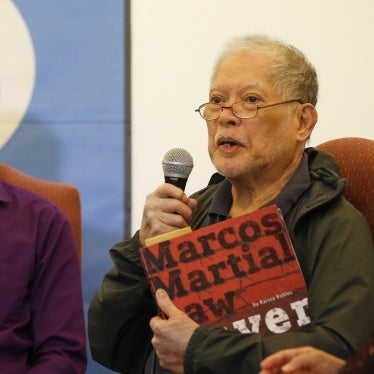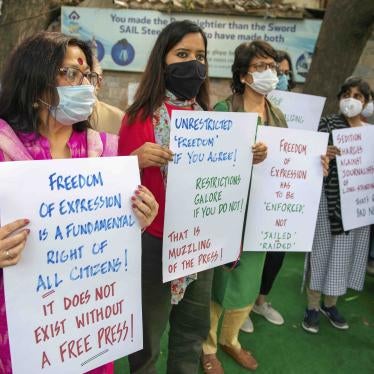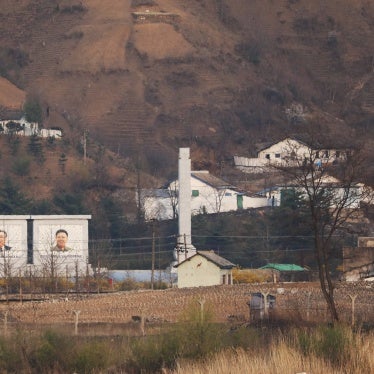(Tokyo)- The International Coalition to Stop Crimes against Humanity in North Korea (ICNK), consisting over 40 leading human rights organizations and activists, today urged the North Korean government toallow international monitors to account for Susumu Fujita and all other abducteesallegedly kidnapped from other countries and taken to North Korea. “Susumu appears to have been abducted from Japan to North Korea in 1976” said Takashi Fujita, his younger brother, who today submitted his brother’s case to the UN Working Group on Enforced or Involuntary Disappearances (WGEID).
Susumu Fujita was a 19 year-old freshman at Tokyo Gakugei University when he vanished on February 7, 1976. In 2004, Takashi Fujita received a photo, which a North Korean defector claimed was that of an abducted Japanese citizen. A Japanese leading forensic anthropologist, Professor Seiji Hashimoto of the Tokyo Dental College, analyzed the photo and concluded, by examining the positions and shapes of various parts of the faces including a scar and a mole, that it was highly probable that the man in the photo was Susumu Fujita . Multiple eyewitnesses also alleged that they saw Susumu Fujita in North Korea or in Japan when he was being abducted. Then Japanese Chief Cabinet Secretary Hiroyuki Hosoda indicated in 2004 that the government would fully investigate Fujita's case but it has yet to recognize Susumu Fujita as an abductee.
While the Japanese government officially recognizes only 17 Japanese individuals as abducted by North Korea, evidence suggests that significantly more than that number were abducted from Japan, including Susumu Fujita. “Our independent investigation suggests more than a hundred persons could have been abducted from Japan to North Korea,” said Kazuhiro Araki of COMJAN, Investigation Commission of Missing Japanese Probably Related to North Korea. “Being deprived of their loved ones without knowing their fate, their families are living a continuous nightmare that has stretched into decades without any answers.”
The South Korean government also accuses the North Korean authorities of systematically abducting their nationals to train them as spies or to use for propaganda purposes. The South Korean government claims that some 500 South Koreans were abducted and remain in North Korea against their will. The March 2012 UN Human Rights Council resolution on North Korea passed by consensus expressed “its very serious concerns at the ongoing grave, widespread and systematic human rights violations” in North Korea and expressed deep concerns at “the unresolved questions of international concern relating to the abduction of nationals of other States.” Further, Marzuki Darusman, the UN Special Rapporteur on the situation of human rights in North Korea, said in his statement on 28 January 2011 that “It is pertinent to note that a number of other countries, such as the ROK, Lebanon, and Thailand have also been victims of such abductions by the DPRK authorities. I stress that the question of abductions is not only a bi-lateral issue between Japan and the DPRK, but one that concerns the international community at large and one that has strong links to the human rights situation in the DPRK. It is thus incumbent upon the authorities to come out clean and settle this long standing question of abduction and engage on wider issues of the human rights and humanitarian situation of the people in the DPRK. Additionally, for an effective resolution of the abduction issue, international criminal liability of those responsible for abduction cannot be ruled out. As a start, I urge the DPRK to return to the promises made during August 2008 to reinvestigate the pending cases.”
“The kidnapping of other countries’ nationals is an affront to human rights, and it is high time for the international community to launch an independent and impartial investigation in order to learn the real scale and nature of these crimes” said Tomoyuki Kawazoeof the Kanagawa Association for The Rescue of Japanese Kidnapped by North Korea.
Under international law, an enforced disappearance occurs when the authorities deprive an individual of liberty but refuse to acknowledge doing so, or conceal the person's whereabouts or fate.The abductions are yet another example of the abuses committed by the North Korean authorities that could constitute grounds for charges of crimes against humanity.
“It is time for the UN to create an independent and impartial Commission of Inquiry to examine whether the North Korean government has committed crimes against humanity,” said Kanae Doi of Human Rights Watch. “Japan and the EU should step up to ensure that future UN resolutions on human rights in North Korea include language that would pave the way for establishment of a Commission of Inquiry into allegations of crimes against humanity in North Korea.
The former UN Special Rapporteur Vitit Muntarbhorn demanded, in his final report to the UN, an “end to impunity” in North Korea, describing violations as “harrowing and horrific,” “egregious and endemic,” and “systematic and pervasive.” He urged the international community to “mobilize the totality of the UN to promote and protect human rights in the country; support processes which concretise responsibility and accountability for human rights violations, and an end to impunity.” On July 8, 2010, the European Parliament passed a resolution calling for the establishment of a Commission of Inquiry, condemning the North Korean Government for its “ongoing, grave, widespread and systematic human rights violations perpetrated against its own people.”
“There is no doubt that the people of North Korea continue to suffer hunger, enforced disappearances, beatings and torture, public executions, and forced labor in political prison camps,” said Benedict Rogers of Christian Solidarity Worldwide. “The world needs to act now to stop the North Korean government from continuing to commit serious crimes under the new leader, Kim Jong Un.”
Members and supporters of the Coalition include:
-Advocates International Global Council
-Amnesty International
-Asia Justice and Rights
-Asian Federation Against Involuntary Disappearances
-Asian Human Rights & Humanity Association of Japan
-Burma Partnership (Thailand)
-Christian Lawyers Association for Paraguay
-Christian Solidarity Worldwide
-Committee for Human Rights in North Korea (USA)
-Conectas (Brazil)
-Council for Human Rights in North Korea (Canada)
-Freedom House (USA)
-Free NK Gulag (ROK)
-Free North Korea Radio (ROK)
-Han Voice (Canada)
-HH Katacombs (ROK)
-Human Rights Watch
-Human Rights Without Frontiers (Belgium)
-Inter-American Federation of Christian Lawyers
-International Federation for Human Rights (FIDH)
-COMJAN (Investigation Commission on Missing Japanese Probably Related to North Korea)(Japan)
-Japanese Lawyers Association for Abduction and Other Human Rights Issues in North Korea
-Jubilee Campaign (USA)
-Justice for North Korea (ROK)
-Kontras (Indonesia)
-Liberty in North Korea - LiNK (USA)
-Life Funds for North Korean Refugees (Japan)
-Network for North Korean Democracy and Human Rights (ROK)
-NK Intellectual Solidarity (ROK)
-NO FENCE <Association for the abolition of concentration camps in North Korea> (Japan)
-North Korea Freedom Coalition
-Odhikar (Bangladesh)
-Open North Korea (ROK)
-People In Need (Czech Republic)
-PSALT NK (Prayer Service Action Love Truth for North Korea)
-The Simon Wiesenthal Center
-The Society to Help Returnees to North Korea (Japan)
-Students Alliance for Human Rights in North Korea (ROK)
-Young Defectors' Alliance for North Korean Human Rights (ROK)
-Yuki Akimoto, Burmainfo (Japan)
-Tomoharu Ebihara
-David Hawk, Visiting Scholar, Columbia University, Institute for the Study of Human Rights, and author of Hidden Gulag
-Ken Kato, Director, Human Rights in Asia (Japan)
-Tomoyuki Kawazoe,Kanagawa Association for The Rescue of Japanese Kidnapped by North Korea (Japan)
-Suzanne Scholte, Seoul Peace Prize Recipient & Defense Forum Foundation (USA)
-Dr. Norbert Vollertsen







